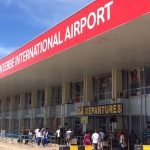Travel chaos is an inevitable consequence of almost every holiday. During some holidays, the impact on the travel industry is minimal, but during others, it can be far more disruptive.
This year, however, holidaymakers have already seen their Easter plans thrown into disarray. With warnings of further travel disruptions still to come, Easter 2022 could possibly be one of the most disruptive periods to date, with record traffic numbers, staff shortages and COVID-related absences all adding to the chaos.
Usually, flight cancellations during the Easter holiday season are caused by one specific reason, rather than multiple events. For example, in 2021 the Easter period coincided with Delta Airlines (DAL), one of the largest American carriers, facing crew shortages due to several factors, including staff members reporting side effect following their COVID-19 vaccinations. Other airlines, particularly in Europe, managed to avoid the same fate, and the wave of flight cancellations were specific to Delta.
In 2019, cancellations in Europe were largely confined to Spain, as the country faced widespread strike action by airport employees. In the US, severe storms disrupted schedules in multiple states, resulting in more than 1000 cancellations across the Eastern coast, while the remainder of the US was unaffected.
2018 saw one of the worst Easters in aviation for decades, as travel in Europe was paralyzed by Eurocontrol system failures. In the US, a cyclone, dubbed ‘nor’easter’, led to thousands of cancelations during the week before the festive weekend.
Unprecedented chaos
In 2022, however, it seems that many of these factors have combined to cause unprecedented chaos. And with the Easter weekend just a few days away, many European countries have already been reporting a surge in cancellations unlike anything the industry has experienced before.
In the United Kingdom, airports have been impacted by a spike in COVID-related absences, resulting in delays and cancellations. The disruption is showing little sign of coming under control before the Easter weekend, as British Airways and easyJet, the nation’s two largest carriers, continue to suffer as a result of staff shortages and the resulting disruptions.
Additionally, many popular holiday destinations, such as Spain and Malta, have scaled back restrictions ahead of the Easter break. Since then, Spain announced that it would be expanding its public transport schedules to cope with the increased demand, as well as the possible spillover of the chaos seen at UK airports.
However, Spain and Portugal are still reeling from the aftermath of historic storms, with disruption expected to last for weeks to come.
Strike action, standstills and staff shortages
The outcome of strike action looms larger still with airport staff in at least five European countries, many of which are considered major travel destinations, having organized or announced strikes in the days leading up to Easter.
A union strike by Italy’s air traffic control (ATC) workers is expected to have minimal effect on travel due to its short duration and preemptive measures to mitigate its impact, implemented by Spanish authorities. Similarly, unprecedented walkouts of German airport workers, which resulted in thousands of flights cancellations during the last week, appear to have led to agreements and a return to schedule. However, German airports have still reported a shortage of workers, warning that the numbers are inadequate to manage the surge in travelers during the Easter period.
However, the impact of strike action by air traffic controllers in Poland is expected to be far greater. Conflict between ATC workers and the Polish Air Navigation Services Agency (PANSA) has resulted in staff shortages across the country’s airports leading to an unprecedented number of flight delays and cancellations. Alongside an increase in travel associated with the relaxing of COVID-19 restrictions and the wider effect of the war in Ukraine, the ongoing strike action has prompted Poland’s Civil Aviation Authority to issue a warning to passengers that the difficulties could continue.
In Portugal, airport security companies, alongside baggage handlers from at least one major airport, called for strikes leading up to Easter. Similarly, an indefinite strike notice was issued by a Belgian trade union to Ryanair management in Dublin on behalf of the Belgium-based cabin crew of the low-cost airline. Lastly, Heathrow cargo handlers have also threatened to strike, a development that could bring air transportation in the UK to a near standstill.
Trade unions across Europe say the strikes are a response to major blunders in post-pandemic policy and planning that has resulted in airports being understaffed and employees overworked and underpaid. If true, this could be as devastating as the pandemic itself, at least in the short term.
However, it is too early to tell if these factors will result in the worst Easter in the history of air travel. But, so far, the signs suggest that it could well be the case, as thousands of travelers face the possibility of spending a significant part of their Easter break stranded in European airports.
Source: Aerotime Hub






